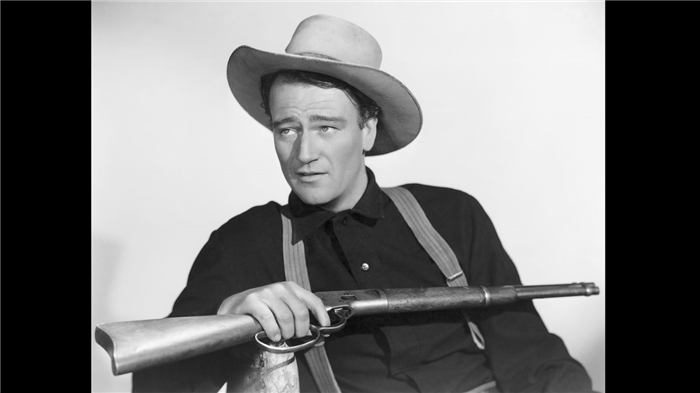I watched an early John Wayne movie on the Grit Network recently and found it awful. I didn’t see the start of it so I don’t know the title, but it had been colorized with an unnatural look. I didn’t expect much of the dialogue, but Wayne’s singing was simply horrible. He was serenading his co-star as his sidekick George “Gabby” Hayes looked on in admiration and complimented him on his vocals.
I am aware that early in his career he was billed as “The Singing Cowboy” and could get away with it as he rode his horse while singing to the cattle, but he was no Gene Autry or Roy Rogers. We moviegoers expected him to ride hard, know how to punch cattle, shoot straight and use his fists. In those areas he did not disappoint.

Saturdays at the Gem Theatre
I did not see many of his movies during my youth at the Gem Theatre because those Saturday features had Hopalong Cassidy, Wild Bill Elliot, Tim McCoy, Buck Jones, Charles Starrett, Sunset Carson, Al “Lash” LaRue and Johnny Mack Brown. Brown, like Wayne, began his film career in the 1920s after playing college football.
We got to know some of the lesser-known cowboy actors like Bob Steele and Tim Holt. They seemed to be such small guys when they tussled with some of the bigger villains. We also got to hear the wonderful Irish tenor voice of Dick Foran as he performed in those unforgettable oaters. Another was Ken Curtis, who played Festus on TV’s “Gunsmoke” and who had been a big band singer. Both of them were outstanding when they sang with groups in John Wayne movies.
When Wayne died on June 11, 1979, I clipped his death notice from the News Sentinel and pasted it on page 183 of my entertainment scrapbook. It became one of the hundreds of clippings I have kept of performers who have died since 1975. For some reason, when Johnny Mack Brown died that year I clipped his death notice and have tried to save the notices of every star of screen, stage, radio and television since.

‘Stagecoach’ made the Duke a star
Born Marion Michael Morrison in Winterset, Iowa, on May 26, 1907, the Duke made 200 movies, beginning with “The Drop Kick” in 1927 just as talkies began to hit the movie houses. Through the late 1920s and early 1930s, he continued making unmemorable westerns until 1939, when he made “Stagecoach,” which was directed by John Ford. Listed as “one of the great American films, and a landmark in the maturing of the western” by film guru Leonard Maltin, it made Wayne a genuine star.
Through the years he grew in mainstream westerns, war movies, comedy and other genres. He even won an Academy Award for “True Grit.” He had played football at the University of Southern California and left in 1926 to began his movie career. He had bit parts and odd jobs around movie sets before he got his break. Not taking himself too seriously, he was once quoted: “Hollywood had only one king — Clark Gable. And now that he and Gary Cooper are gone, I’m just a lonesome cowboy, nothing more.”

Leave a Reply